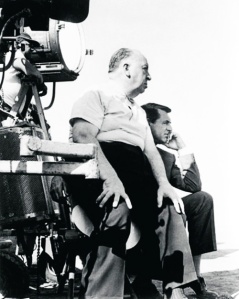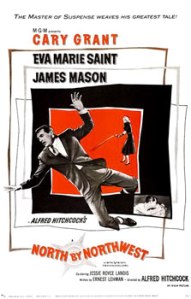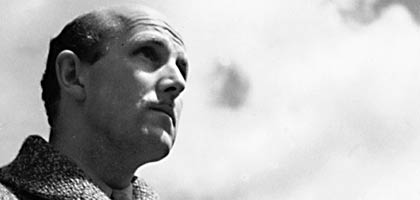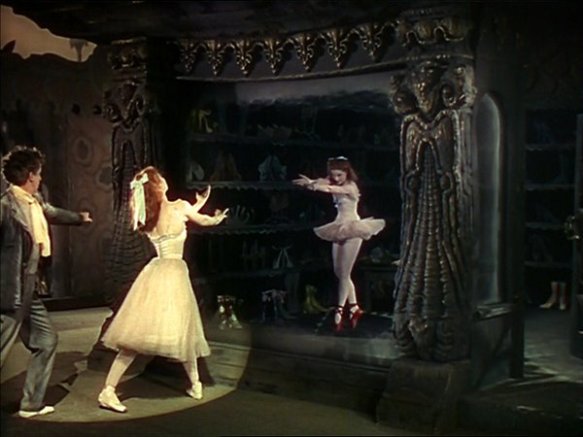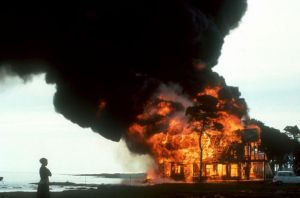With Almereyda’s Cymbeline (brave choice!) and Justin Kurzel’s Macbeth both due to be released in the next year or so, one starts to think of Shakespeare plays you’d like to see filmed and those proposed films of that never got made. It turns out that three of my favourite directors nearly adapted Shakespeare for the screen but didn’t quite get there – imagination bodies forth and wistfully forms images of what might have been.
Most famously and probably best known, Alfred Hitchcock wanted to produce a modernized version of Hamlet set in England with Cary Grant in the title role.
With his love of Freud, it’s not surprising that Hitch wanted to produce Hamlet as “a psychological melodrama”. How much of Shakespeare’s original language the script would have contained is unclear but I for one would have loved to hear Grant’s distinctive and enchanting voice reading the lines of the Bard. The reasons as to why the project fell through seem to be manifold. Cary Grant, who was ever-so-slightly type-cast by everyone (except Hitchcock) because of his excellence in romantic comedy, turned down the role.
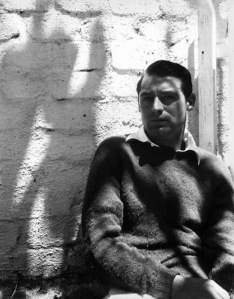 In films like Notorious and Suspicion Hitch had brought out interesting tensions in Grant’s persona, revealing a darker and dangerous side to his character. Grant himself was apparently struck with class-consciousness and feared that his cockney upbringing would become evident in Shakespeare which was traditionally spoken in Received Pronunciation. Could it be that he also felt that at the age of forty-two he was too old to play the Dane? Grant’s decision aside it has also been mooted that a professor who had written a modern version of Hamlet threatened Hitchcock’s film company, Transatlantic, with a lawsuit.
In films like Notorious and Suspicion Hitch had brought out interesting tensions in Grant’s persona, revealing a darker and dangerous side to his character. Grant himself was apparently struck with class-consciousness and feared that his cockney upbringing would become evident in Shakespeare which was traditionally spoken in Received Pronunciation. Could it be that he also felt that at the age of forty-two he was too old to play the Dane? Grant’s decision aside it has also been mooted that a professor who had written a modern version of Hamlet threatened Hitchcock’s film company, Transatlantic, with a lawsuit.
Interestingly, one of Hitch’s most successful and popular films has been compared with Hamlet by some critics, North-by-Northwest referring to Hamlet’s words to Polonius, “I am but mad north-north-west”. Read more on the Hamlet connection in Grunes’s blog: http://grunes.wordpress.com/2007/03/30/north-by-northwest-alfred-hitchcock-1959/
…and in A Hitchcock Reader, ed. Marshall Deutelbaum (Wiley-Blackwell; 2nd Edition 2009)
Nice to think that he smuggled in the Dane at last!
It’s also great that the legacy of this missed opportunity lives on – students from Mercyhurst University, PA., were given one week to plan, film, edit, and present a film in homage to Hitchcock’s proposed Hamlet – screenshots from these are available online. http://plato.mercyhurst.edu/english/breed/www/Hitch/HHH.htm
Another of Britain’s greatest and most visionary directors, Michael Powell, who worked with Emeric Pressburger on some of the most visually stunning, emotionally complex, beautiful and intriguing films ever made (yes, I’m a big fan..) – wanted to direct a film version of The Tempest.
Powell worked on the script from 1970-1975 producing several versions. The production was to have starred James Mason as Prospero and Mia Farrow as Ariel. Topol, Frankie Howerd, and Malcolm McDowell were also in the proposed cast; Gerald Scarf was set to design. If any of you have seen The Red Shoes, A Matter of Life and Death or Tales from Hoffman, for example, you will start gnashing your teeth at such a missed opportunity. It’s hard to imagine a director that would be better suited to directing the visual fantasy, poetry and imagination of The Tempest.
However, Powell had been condemned for his own genius by British studios when his controversial film Peeping Tom hit the screens in 1960. Now considered a classic the violent reaction by critics to the film basically ended Powell’s career in this country. In view of what had happened to Powell, Hitchcock refused a press screening for Psycho which came out the same year, in fear that it would elicit a similar reaction. Powell (like many criminalised Brits before him!) exiled himself in Australia. While he was there he made the films They’re a Weird Mob and Age of Consent starring James Mason and Helen Mirren. It was during the making of Age of Consent that Powell started thinking about Mason as Prospero. However it was not to be. The BFI web page on films of The Tempest notes:
Michael Powell never made his long-planned Tempest, but his 1969 film Age of Consent, shows clear parallels, being about a disenchanted artist (James Mason) who rediscovers his inspiration when he meets the beautiful Cora (Helen Mirren), but their idyllic existence is threatened by the coarse Caliban-like Nat Kelly (Jack MacGowran). http://www.screenonline.org.uk/tv/id/564758/
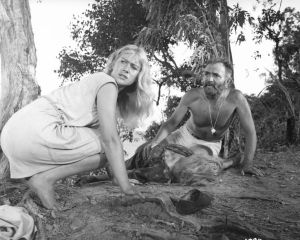
Age of Consent, 1969 with Helen Mirren and James Mason
Michael Powell stated: I gave up the idea of doing The Tempest in England – because people said, “Oh Christ! Now he wants to do The Tempest! It’s a good script but you know Micky Powell and you never know where it will end!” Funding was turned down by major studios. Some backing was given by Frixos Constantine & Costas Caryiannis but the rest of the money couldn’t be raised.
The great advocate and scholar on Michael Powell, Ian Christie, celebrated Powell’s unmade Tempest at Cine City Brighton Film Festival in 2009 in which they showed:
… a section of The Tempest which was specially created for a tribute edition of The Late Show on Powell in 1992. Powell wrote the scene in a Shakespearean style as a new opening to the film. “Most film-makers spend time working on projects that don’t get made and never get talked about. What I’m trying to do is bring those films alive,” says Christie. So while we will never see Powell’s full vision of “the one that got away”, we can at least glimpse what he was trying to achieve. (Independent, 19 November 2009)
The third in my top three of missed opportunities is Andrei Tarkovsky’s Hamlet. Tarkovsky had directed Hamlet for the stage in 1977 at Moscow Lenkom Theatre. He believed Hamlet to be “one of the greatest works of genius in the whole of art.”
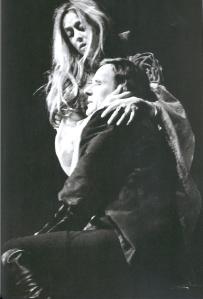
Hamlet, Moscow, 1977
It is telling that, when Tarkovsky began to speak publicly about his conception for a film adaptation of Hamlet, he was circumspect concerning the details because, he said, ‘I still have to find an equivalent of Shakespeare in my own genre. I have to find my own form to deal with the story, a different dramaturgy.’ Robert Bird, Andrei Tarkovsky: Elements of Cinema (Reaktion Books, 2008) 184
The Hamlet Project at the Capital Centre, University of Warwick initiated by Tom Cornford investigated Tarkovsky’s staging of the play with other lost or never-made Hamlets of Stanislavsky and Edward Gordon Craig, Meyerhold, Michael Chekhov. http://www2.warwick.ac.uk/newsandevents/podcasts/culture/89-hamlet-project/
It’s clear through Tarkovsky’s visual mastery of symbolism, philosophy and spirituality as to why he was drawn particularly to Hamlet. Like Powell he was not afraid to mix ‘visions’ with reality and use all of the imagination and technical brilliance he possessed. With a cinematographer like Sven Nykvist who worked on Tarkovsky’s last film The Sacrifice (and long-term collaborator of Bergman) one can only imagine the masterpiece of cinematic poetry that would have emerged. Sadly, Tarkovsky was diagnosed with cancer in 1985 and was denied the time to plan and produce his Hamlet. He died in 1986 aged 54.
Karin Brown, Shakespeare Institute Librarian

